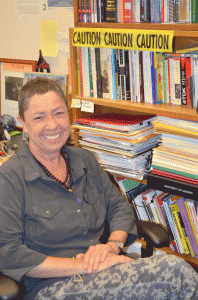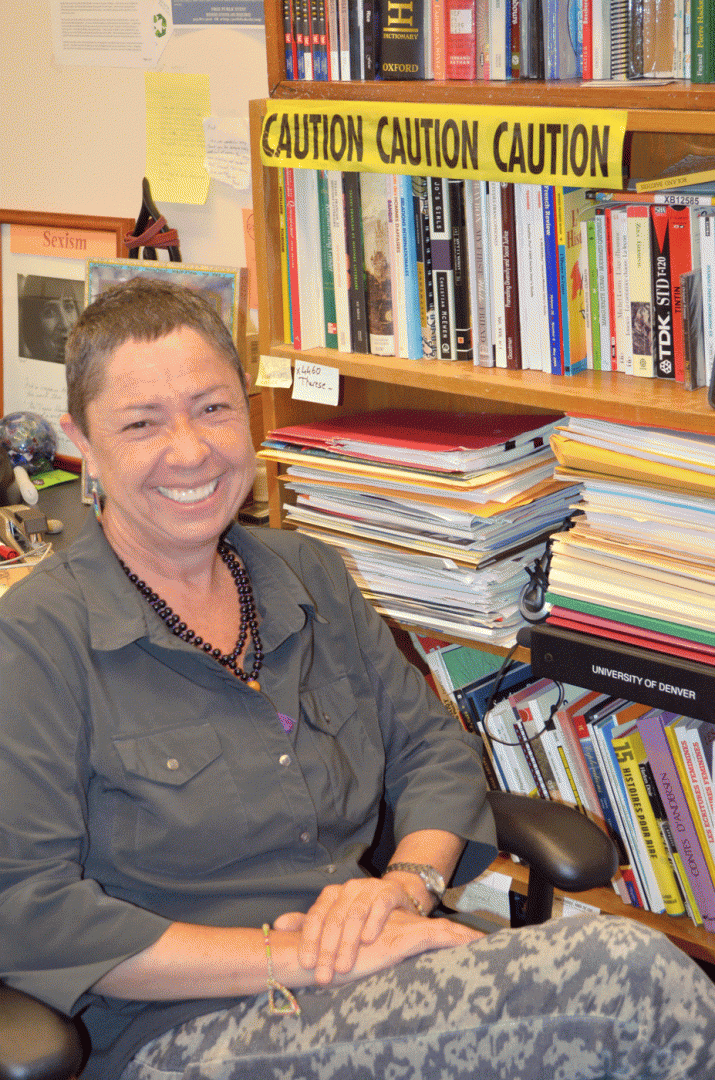
Frédérique Chevillot, associate professor of French at DU, says she goes against the grain of many things. For example, she rejects what culture says about women.
Three years ago, she and Colette Trout, a professor of French at Ursinus College in Collegeville, Pa., sent out a call for female authors to submit fictional essays on criminal and violent women. Chevillot and Trout co-edited the book.
“We want to shift the paradigm,” said Chevillot. “We don’t want female characters to be limited by social assumptions.”
This book is Chevillot’s third book and was published two weeks ago. It is titled “Rebelles Et Criminelles Chez Les Ecrivaines D’Expression Francaise,” which translates to “Rebellious and Criminal Women in the Works of French and Francophone Female Writers,” according to Chevillot. It is compiled of 15 essays, about two-thirds written in French and the rest in English.
“I don’t want women to be trapped in stereotypes,” said Chevillot, referring to the stereotype that women are supposed to be motherly and caring.
“I have an interest in rebellious, criminal and altogether violent women,” said Chevillot. “[Also] how women are presented throughout time and space by women.”
As an author and professor, her field of study is contemporary females who write in French.
“Colette Trout and I share a profound interest for women’s writing,” said Chevillot. “We both were interested in the way in which the violent acts of female characters were represented in works of fiction by French and Francophone women throughout time and space.”
The book is broken into three different sections.
According to Chevillot, the first section translates to “The Slow Rebellion of Women,” which includes essays written about rebellious women in the Middle Ages and the 16th through early 20th centuries.
The second is “Women’s Resistance To Colonial and Postcolonial Violence,” which has essays about women in Guadalupe, the Caribbean and Camerone during the colonial and post-colonial time period. Lastly, “The Telling of Murdering to the Writing that Kills” is made up of essays based in the late 20th and early 21st centuries illustrating the violent images writing creates.
“[These essays] create violent images of criminal women,” said Chevillot. “This goes against the grain of what society expects from women.”
In addition to compiling the essays, Chevillot wrote an essay for the book, which was included in the last section. Her essay focuses on how Amélie Nothomb, a Belgian writer, represents female characters in love. Her essay is written in French, but the closing sentence translates as “to love is to kill but no one ever dies,” according to Chevillot.
By this she means that writing is symbolic and does not have any physical consequences.
“These women kill the object of their love whether it be symbolically or not,” said Chevillot. “But even if expressed in a non symbolic way, it remains fiction … no one ever dies.”
According to Chevillot, women want to be strong, powerful and maybe violent, but not necessarily in a physical way. Women’s violence can be symbolic through writing or other activities.
“Maybe we need to have more literature and art to channel violence instead of acting it out in reality,” said Chevillot.
Chevillot’s first book was her dissertation. It is titled “La Réouverture Du Texte,” which translates to “Reopening of the Text.” The book is the study of the beginning and ending of French and French-Canadian novels from the 19th and 20th centuries, according to Chevillot.
Her second book, “Des Femmes Ecrivent La Guerre,” which translates to “Women Writing About Wars,” is a collection of essays written by female authors on wars in the 20th century. The book was co-edited by Chevillot and Anna Norris, a professor at Michigan State University.
“Although women never actually fought in these wars, as it were, they fought for survival,” said Chevillot.
Chevillot grew up in Bordeaux, France and came to Colorado in 1979 to attend the University of Colorado Boulder and study French Literature.











